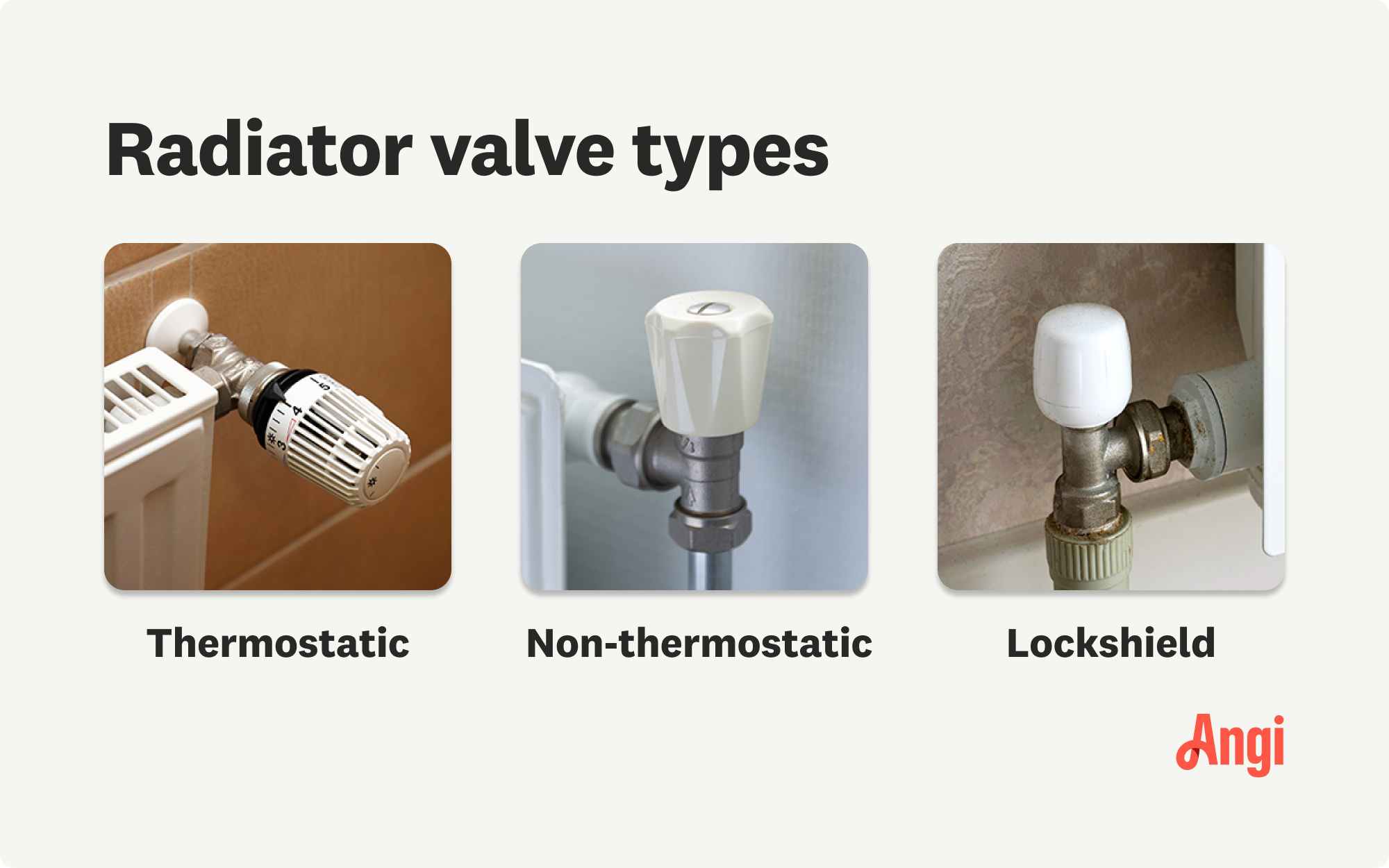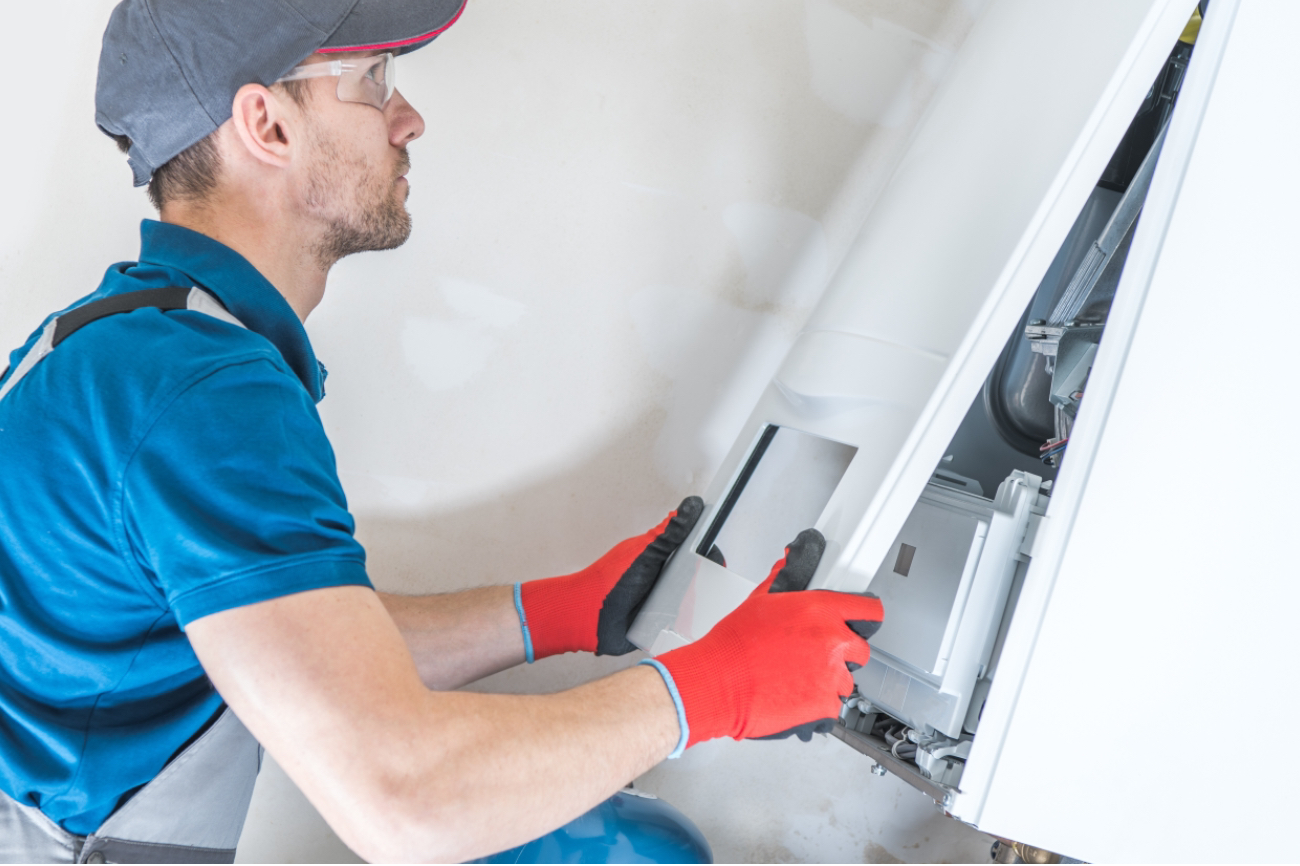
When your heat goes out, it can cause a bit of a panic. But knowledge is power, so let's go over radiator repair costs before that happens.
Stop a noisy radiator from disrupting your day


Radiators move hot water or steam, so they may hiss from time to time.
A stuck or clogged air vent can cause a hissing sound.
Radiator leaks may lead to hissing noises.
You may need to bleed the radiator to fix the hissing.
Call in a pro to diagnose and fix a hissing radiator if you can’t find the problem.
You’re settling into bed on a chilly winter night, but suddenly, you notice your radiator hissing. The hissing sound coming from the radiator threatens to keep you up all night, both annoyed by the sound and worrying whether something serious is wrong with your home’s heating system.
So why is your radiator hissing? As it turns out, there are many different potential causes behind this pesky problem, and some of them are fixable with DIY methods.

Before you dive into the different parts and problems that can lead to a hissing noise in the radiator, it’s helpful to understand the basic mechanics of how the whole thing works. If you’re wondering how radiators work, it all comes down to convection.
The radiator is connected to a boiler that produces steam or hot water, which travels through pipes to the radiator. The radiator is typically made with metal for better conduction, and the metal heats up and begins warming the air around it. But sometimes, the steam doesn’t vent properly, or there’s a leak in the system. These issues, and several other potential culprits, can lead to a hissing radiator.
The system air vent, also called the air valve, needs to open fully to either take in ambient air when the radiator is not heating the room or release air during the heating cycle. If the air vent gets stuck, it may prevent the air from properly releasing, leading to a hissing sound.
Check the control valve of the radiator, which should be near the floor, and make sure it’s all the way open. Only close it when you want to turn the radiator off. If the control valve isn’t the issue, you may need a new air vent.

When you’ve confirmed that the control knob is set fully open and the radiator hissing is still a problem, you may need to replace the air valve entirely. The air valve may be old or damaged, or you could have a valve that’s too small for the radiator.
Check the size of the air valve before heading to the home improvement store for a new valve. You’ll need to turn off the radiator and let it cool fully, then carefully turn the old valve counterclockwise to remove it. Then, wrap the connection with thread sealing tape before screwing the air valve, venting side up, back onto the radiator.
If you aren’t sure how to find the right size or how to properly install the new valve, you should hire a boiler repair person to replace the air valve for you.
If you notice your radiator making hissing noises, it’s often a sign that the vent is obstructed and needs some care. The air vent may be clogged with rust, calcium buildup, or other debris, preventing it from functioning properly. Fortunately, this is an issue you can easily handle at home.
To address the problem, turn off the radiator and let it cool. Then, remove the air valve and soak it in vinegar for at least 30 minutes. After soaking, rinse the valve with cool water, allow it to dry completely, and then replace it. This simple maintenance step can help restore your radiator’s efficiency.
With all that hot water or steam moving through the system, a radiator may hiss when these elements begin to leak. If the vent opening is facing sideways or down instead of up, water or steam can leak out. The air valve can also leak if it isn’t properly connected, which is why it’s important to wrap the connection with thread sealing tape before screwing a cleaned air valve or new air valve onto the radiator.
If the issue isn’t the air valve, it’s time to call in a repair person. A radiator leak could mean the entire radiator needs a replacement, and the longer you wait, the more water damage you could be dealing with. You can expect to spend about $100 to $2,500 on the cost of a radiator replacement, while water damage restoration costs anywhere from $450 to $14,700.
Trapped air is one of the most common reasons for a hissing radiator. When air gets trapped inside the radiator, it can prevent steam from properly circulating, causing water to block the steam from entering the radiator. This blockage creates pressure that results in the hissing sound. Left unchecked, this issue can reduce your HVAC system’s efficiency, making it harder to heat your space effectively. Fortunately, bleeding the radiator to release the trapped air is a simple fix that can restore optimal performance and eliminate the noise.
Bleeding the radiator involves turning off the radiator and allowing it to cool, placing a towel near the radiator, and opening the radiator bleed valve located toward the top of the radiator. You’ll open it just enough to let the air hiss out, but carefully shut it again when you notice a bit of water start to leak out.
Add radiator bleeding to your annual maintenance checklist for your home’s heating system, as doing this about once per year can help manage any hissing or other unpleasant noises coming from the radiator.
If your radiator is hissing or making other strange sounds, like banging or gurgling, it’s usually safest to hire a local boiler repair company to come take a look. There are many different issues that may cause radiator hissing, and if you aren’t confident in what you’re doing, you could be burned by the hot water or steam in a radiator, break off one of the important knobs or valves, or be stuck with a watery mess. Instead, skip the hassle and let the pros handle these repairs so that you can be cozy and warm at home again with minimal radiator downtime.
Getting a tuneup before cold weather hits ensures you don’t find yourself without heating when the temperatures drop.
Mayflower was an excellent choice for the complete renovation of my condominium. They knew exactly how to deal with the complexities of the condo building and management to make the project very smooth, easy and done right. From start to finish, everyone was incredibly helpful and their...
Tony was very professional and personable. He explained the damage he saw and reassured me the work to be performed. On the day of the visit he was punctual, courteous and exceeded my expectations while sharing information.
Exceptional quality of work, customer satisfaction oriented. I wanted to do interior work and was so impressed I asked for shingle roof and siding work on my home also, which came out very great. Any questions and concerns, Galaxy contractor answered my questions. Thank you guys.
Alex and his crew are great! I contracted them to move my dad and they went above and beyond!
All Complete Construction is very professional and helpful roof company. They care about what they do and provide excellent customer service. Sam is the great person. Their office staff was super positive, helpful and attentive. Wouldn t hesitate to call them again when we need roof chimney...
Excellent sales staff and installer. Easy to work with. I appreciated that my current system was able to be activated and used.
We didn't have to put down a deposit, and they did a fantastic job landscaping the front and rear! I appreciate it!
I needed a kitchen and bathroom remodeling and these guys were the best people I could choose. They took my vision and brought it to life! Amazing customer service.
From average costs to expert advice, get all the answers you need to get your job done.

When your heat goes out, it can cause a bit of a panic. But knowledge is power, so let's go over radiator repair costs before that happens.

If your air conditioning unit isn’t functioning properly, you might need an AC recharge. Our guide will detail what a typical AC recharge cost looks like.

The average boiler installation cost depends on size, system type, and other factors. Keep reading to learn the cost of a new boiler.

Need to purchase a new gas furnace but aren’t sure which type is right for your home and needs? Taking a little bit of time to research furnaces to see which option is right for you can save you money over time. Here’s a look at five furnace types.

Discover heat exchanger replacement costs to learn about price factors, labor, and ways to save before hiring a pro or starting your project.

There are few things more important to homeowners than keeping their AC systems running. Use this guide on AC leak repair to keep your home cool and comfy.